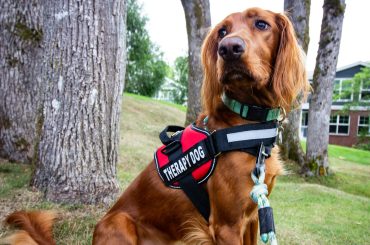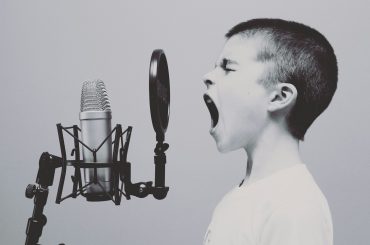
After rehab, I entered ‘the rooms’ as a protocol for what I, and others, believed would be helpful. I was desperate to overcome the feelings that I had tried to outrun my entire life. As life would have it, my life improved for some time. I went religiously to meetings three times a week, did step work and worked one to one with a sponsor for many years. However, there was this tiny voice whispering to me that I had a calling to teach others how to transcend their pain and dysfunction and there must be something more.
As much as I connected to the 12-step community, I also had much ambivalence. I felt I truly belonged to this community but my heart screamed for more. Five years later, I found myself at a closed meeting, to which I was still struggling with stating my name, and saying I am an alcoholic. I continued to wonder if I was truly an alcoholic/addict. I also had some strong reactions to the sometimes-derogatory language that accompanies the rooms which was threatening my unhealthy self-esteem.
I have immersed myself fully into the recovery culture, eager to learn, and dove in, committed to my recovery process. Rehab, individual and group therapy, 12 step meetings, a devout daily practice (to this day) which consist of prayer and meditation, retreats, somatic therapy and eventually becoming a certified addiction counselor. I created programs, and performed outreach for individuals and families who suffer with substance use disorder, yet there was still something missing from my life.
I believe I have perspective on my illness and I am to this day teachable, as I hopefully continue to evolve to my highest self-actualized self. I must preface that none of the above could have ever been considered or achieved without abstinence from mind altering substances.
The reason I write about this is to not to debate who I am, as I know on many levels I qualify and am an active and engaged member of the mental health and addiction community. Making a statement about one’s own ambivalence is enough to cause judgment, and sometimes outright unkindness that may accompany and prevent someone from even making a statement like this. I want to feel supported about my own ambivalence and not judged harshly for not conforming to what everyone else is doing. Ambivalence is normal, but not being able to explore it feels down right unhealthy. Intolerance can feel hostile which is what keeps us separate, whilst compassion is the bridge that connects us back.
To me, I have stated it many times and it is part of my business mission; that I don’t care how people get well, as long as they do! I support all paths to recovery and the process that it takes, and my personal mantra is “to do no harm. “ It is my belief that we can empower someone to make positive changes when we treat them with kindness, dignity, and compassion. Individuals are far more likely to take one step forward on their recovery journey when they feel supported, as compared to being judged or criticized for what and how they may be doing something differently or not at all. Recovery is the doorway to possibility and an invitation to living a life beyond your wildest dreams.
I recently met a gentleman named Bob, who displays this kindness and compassion in an extraordinary way. He lives his life simply, but with purpose. Bob has performed three random ‘acts of kindness’ every single day for the last 30 years. In fact, he shares his acts nightly with his daughter to keep him accountable for his personal mission to make an impact in this world. For example, Bob will pay for the person in front of him at Starbuck’s and does perform even bigger acts when warranted, for people in his life. When I heard this I marveled at the generosity of his heart and the volume of acts he would perform every day. When I heard Bob’s tenacious commitment to perform random acts of kindness it was beyond inspiring. I shared his work with my family and asked them to ponder on whether or not they wish to join me with this new positive and selfless way of life.
What if we all could just perform one act of kindness, how much happier and connected we would all be?
I knew instantly that I too could up my kindness quota, and make a difference by simply looking for opportunities to make a positive difference in someone’s life. It took years of performing random acts of kindness and doing the next right thing that allowed me to view myself in a different light, one with forgiveness and compassion.
The challenge has now been presented to you!
See if you can make a difference in the simplest way to others. It may be a genuine smile to somebody when you walk by them, going out of your way for someone, lend a helping hand without being asked, providing some well needed emotional or financial support, or simply bringing a tea or coffee when visiting with a friend.
Men and women who struggle with mental health issues are some of the most kind and sensitive souls ever, and their feelings are often amplified. Respect, kindness and compassion are important virtues to incorporate into our everyday lives and even more so into the recovery community, where sensitive souls may gather.
As a society, we value much needed virtues such as education and hold it in high esteem and one that commands respect. Interestingly we do not look at kindness with the same value. Obviously, everyone wants to be around people who shower kindness but do nothing to show its value. Respect, kindness and compassion are guiding principles as an antidote for troubling times.
I invite you to join myself, along with my friend Bob, by paying it forward daily with random acts of kindness, performing one act at a time. We are all stronger and happier together. Supporting each other is a key component to achieving a fulfilling life.







2 Comments
Wow, I really needed to read your post today. I am a member of A.A., I am also 5 years sober now. When I read your post I kept saying to myself, yea that’s me, my 5 years in sobriety has followed the same path as your first 5 years. Three Thursdays ago I was in an A.A. Big Book Study meeting. I had been going to this meeting for a little over a month. Up until then I had not really shared in the meeting, I was new in the meeting. They were not really studying the book. It was more like, everyone would read a page or so and just pass. Very little was being said about what was being read. I talked to several of the other meeting members about how other Big Book study meetings were done and everyone present, mostly new in sobriety, liked the idea about really learning about what the Big Book said and the meaning of what was read.
Ok 3 Thursdays ago, I was asked to lead and to present the new format. Reading 1 or 2 paragraphs and a thorough discussion on what was read. About 3/4’s of the way through the meeting a, right from the 12 n 12, “Bleeding Deacon”, starting telling the other meeting members that what I was saying was not in the Big Book, that what I was saying was not true, and what I was saying was not AA APPROVED INFORMATION. I was told to leave and not come back. When I said she couldn’t do that because I had a desire to stop drinking, she started using the word f_ck you and kept telling me to shut up. Everything she said to me was in a very angry and aggressive manner. She was shouting at me in a very loud voice and kept bringing up the fact that she was 25 years sober. Where was the kindness, tolerance, compassion, dignity, respect, understanding, and everything else we learn in recovery. I felt very vulnerable, threatened, disrespected, and much much more. I spoke with my sponsor about it and he only made me feel worse. I was thrown into a mental, emotional, and spiritual tailspin, straight down. The next day, Friday, I got on my motorcycle and started riding. Three weeks later I am still riding. I have not had the desire to drink or use drugs. I feel very lonely, unable to think straight, and afraid. I know that getting high will not help or do me any good. I have trouble praying and meditation. I think a lot about my old behavior and attitudes. I am having problems being kind, patient, tolerant, humble, and understanding. I have tried going to AA meetings but I am very defensive and I have a hard time feeling safe in the meetings. I am now A LONE WOLF. Each day I ride further and further away from home. I have total disregard for all my obligations back home. I even changed my phone number so nobody could get ahold of me. I know I am being reckless but I JUST DO NOT CARE! Am I that bad?
I am sorry I wrote so much. This was my first opportunity to get it off my chest. Thank you very much, Marco C.
Hi Marco,
I am so glad you reached out, you are not alone, you just may not have found your tribe yet. In fact, there is an old blog post of mine that talks about the exhilaration when you do!
The big book has a saying “principles before personalities” which means that we do not let other people ‘character defects” get in the way of our recovery, period! There is no excuse for the way “bleeding deacon” responded to you, whether in the rooms or out in society. In fact, you would think that ‘in the rooms’ we may hold ourselves to an even higher standard, knowing better. What you witnessed is not a good example of recovery and I encourage you to keep looking for a meeting where the energy and the message is vibrating at a higher frequency with you. Please do not go the lone wolf route, it will only bring you more pain and heartache. I encourage you to try different meetings, maybe try a variation of 12 steps supports such as Refuge Recovery, which is here ‘intherooms.com It has a gentler spirit and you can still look for different options in your own community such as SMART Recovery or live Refuge meetings. You will find your tribe, and if you wish I will hop on a call with me so that you may feel a little more connected to the recovery community. Johann Hari, the author who wrote The Scream, states that the opposite of addiction is connection! Wishing you all the best and joy filled sobriety!!